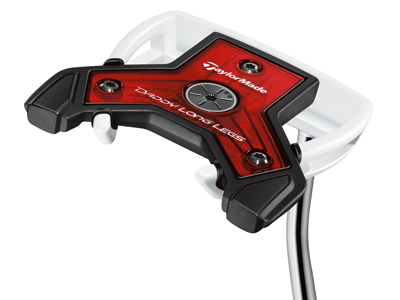TaylorMade Unveils Daddy Long Legs Putter
The Daddy Long Legs is the newest addition to the TaylorMade Spider family of putters

Subscribe to the Golf Monthly newsletter to stay up to date with all the latest tour news, equipment news, reviews, head-to-heads and buyer’s guides from our team of experienced experts.
You are now subscribed
Your newsletter sign-up was successful
Want to add more newsletters?
Following on from the success of TaylorMade Golf's original Spider putter comes the new Daddy Long Legs.
This counterbalanced putter with a moment of inertia of 8500 is an effective alternative for those currently using a belly or broomhandle putter, the grip -- double the normal weight -- acts as a counterbalance to the clubhead.
Adding weight to the grip-end of the club helps keep the putter stable and enables the clubhead to stay on path during the stroke. For maximum effectiveness the grip extends three inches above the player's top hand.
Because of this, players are advised to choose a shaft length three inches longer than normal. For example, a golfer accustomed to a 35-inch putter should opt for the 38-inch model.
The Daddy Long Legs' high moment of inertia means the head is exceptionally twist-resistant, helping golfers get a smooth roll on the green -- even on mis-hits.
"Daddy Long Legs feels like it is on auto-pilot when you swing it, and it takes noticeable effort to move the clubhead off-path," said Brian Bazzel, Product Category Director for putters and wedges.
The Daddy Long Legs putter, available from 15 April, retails at £159 and comes with a 35-inch or 38-inch shaft.
Subscribe to the Golf Monthly newsletter to stay up to date with all the latest tour news, equipment news, reviews, head-to-heads and buyer’s guides from our team of experienced experts.
Daddy Long Legs putter gallery